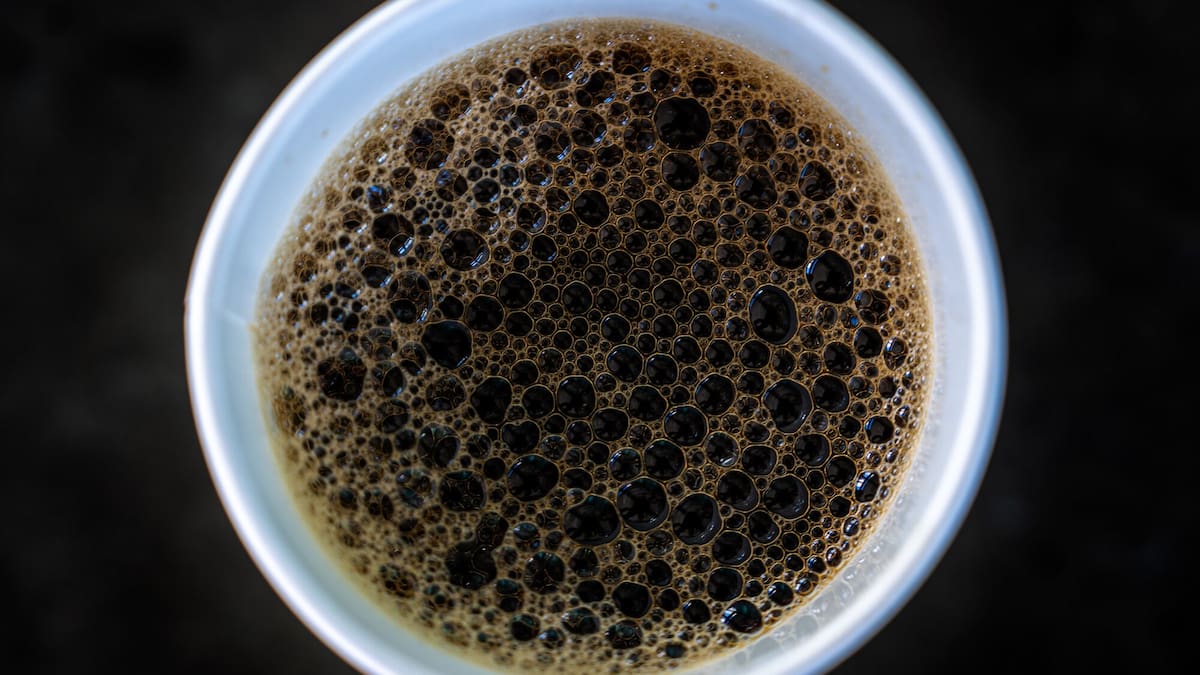Then there’s the classic symptom of jaundice, where you’ll see yellowing of the eyes and skin, because the liver can no longer excrete bilirubin, a yellow pigment produced when red blood cells break down.
While the prospect of liver damage may be frightening, the good news is it is an incredibly resilient organ that can recover under the right conditions. I’m still astounded at how quickly the liver regenerates. This is why it’s never too late to give up alcohol or start losing weight.
In keeping our livers healthy, it’s important to focus on prevention. Luckily, there are all sorts of things we can do to protect this vital organ.
These are my top science-backed tips.
1. Drink 3-4 cups of coffee a day
The health benefits and risks of coffee are an incredibly well-researched topic. We know it boosts our energy and can help with concentration, while too much of it can lead to insomnia and anxiety. However, fewer people realise the power that coffee holds as an anti-fibrotic, which prevents or reduces scar tissue.
It’s incredibly good for the liver, and I drink three to four cups of it each day to maximise these benefits, usually sticking to black coffee, as added dairy or sugars can reduce its powerful antioxidant and anti-inflammatory effects.
In a 2025 study, researchers found that giving patients with cirrhosis 400mg of caffeine (roughly four cups) each day improved their liver function. In an older review by the British Liver Trust, they found that regularly drinking moderate amounts of coffee in any form, even decaf, may prevent liver cancer.
While we’re still unsure exactly why caffeine possesses this unique power, we believe its protective effects lie in its potent combination of compounds and antioxidants.
2. Swap your butter for olive oil
When I’m cooking, I try not to use butter or animal fats and avoid saturated fats like red meat and full-fat dairy wherever possible. A 2018 study in Diabetes Care found that saturated fat is more harmful for the human liver than unsaturated fat or simple sugars because it increases the concentration of fat molecules and causes inflammation.
Instead, I cook with extra-virgin olive oil because it’s anti-inflammatory and packed with antioxidants that help reduce fat build-up in the liver. Where possible, I grill, roast or bake my food using extra virgin olive oil rather than frying with it, as that can reduce its healthy compounds.
3. Have four consecutive alcohol-free days each week
It may sound obvious, but to reduce your chances of alcohol-related liver disease, it’s important to space out your drinking days. For my patients showing early signs of liver damage, I ask them to have four consecutive days without drinking. On the days they do drink, I ask them to reduce their intake so that it’s within the recommended 14 units of alcohol per week.
That’s the sensible advice for people showing early signs of damage, and I’d recommend the same for those without any damage. However, for those with established liver disease, the only option is to stop drinking alcohol. If you keep damaging the liver by continuing to expose it to the toxin, you are at risk of progressive liver disease and even liver failure.
4. Reduce your sugar intake
In the liver, sugar is converted into fat. If you eat too much sugar, this increases fat build-up, which can lead to metabolic dysfunction-associated steatotic liver disease (MASLD) and inflammation in the liver (MASH). Over time, this causes damage, meaning the liver can’t work as efficiently and can lead to more serious problems.
One 2023 study found that the increasing prevalence of fatty liver disease is linked to the rise in sugar consumption and that the disease is strongly associated with insulin resistance, type 2 diabetes and obesity. It’s therefore crucial to reduce your sugar and carbohydrate intake to keep your liver healthy.
5. Walk as much as you can

Not everyone can hop on a treadmill, attend a weekly spin class or lift heavy weights, but keeping fit is crucial for a healthy liver. Frequent exercise helps decrease fat accumulation in the liver, which is a key factor. It also improves metabolic health and reduces inflammation.
In fact, for my patients who already have inflammation in their liver, I recommend they drop 5% to 10% of their body weight through diet and exercise. This is a simple intervention that often has a remarkable impact, with many of my patients seeing their levels of inflammation and excess fat drop significantly.
If you can’t lift weights, cycle or run every day, please walk as much as you can. A 2021 study in JHEP Reports found that an increase of 2500 steps each day can have a great effect. It was associated with a 38% reduction in liver disease and a 47% reduction in metabolic liver disease.
6. Don’t fall for fad ‘detoxes’
“Detoxes” are all the rage on social media and among certain “wellness” influencers. While there are diets that recommend certain foods to promote “liver cleansing”, you cannot physically detox it. You should approach products and regimes that claim to do so with caution.
Rather than embarking on a fad diet that promises quick results, try to incorporate these tips into your daily life. Start each day with a cup of coffee. Enrich your meals with olive oil. Walk as much as you can. Caring for your liver is a life-long project – there are no “quick fixes” to stave off inflammation and disease.
– As told to Ella Nunn
- Professor Patrick Kennedy is a consultant hepatologist and gastroenterologist and world renowned expert in viral liver disease. He trained at University College Dublin, completed post-graduate training in London and is the founder of Leaders in Liver Health, where he treats patients.






